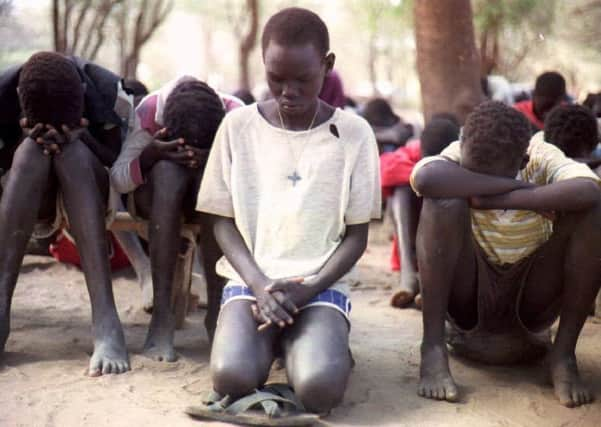Michael McKean: South Sudan needs urgent peace deal


It is ironic that I am writing my first regular column for The Scotsman 200, in which I aim to bring you the humanitarian view behind some of the biggest headlines of the day, about a crisis that has barely made the news this past year.
When I was in the southern region of Sudan in 2007 I met a people filled with hope and promise to realise their own sovereignty. Independence came from Sudan in July 2011, and South Sudan became the newest country in the world following a peace deal that ended Africa’s longest-running civil war.
Advertisement
Hide AdAdvertisement
Hide AdNow, just six years later, over two million people have been displaced from their homes and 7.5 million are in need of humanitarian assistance and protection as a result of armed conflict,inter-communal violence, economic crisis, disease outbreaks and climatic shocks.
The effects of this conflict have pushed the number of South Sudanese escaping their country to over one million, resulting in the largest movement of refugees on the African continent, with people fleeing to Kenya, Ethiopia, Sudan and Uganda. Uganda is now home to the majority, over half a million within its borders.
Presently, northern Uganda is seeing some 1800 people arriving daily seeking refuge from killings, nightly attacks on homes, looting and sexual violence. What this means is that Uganda is settling more refugees in one week than some Western nations are prepared to welcome in a year.
Now, add that in 2016 South Sudan outstripped Afghanistan as the most dangerous place for aid workers and we have a tough job on our hands. Yet our teams still reach thousands of people every month providing food assistance, water, sanitation and hygiene services and helping keep children in school in conflict-affected areas. We work closely with communities to design projects that respond to their needs and where markets are functioning and the security situation allows, we provide small business training and livelihoods support for fishing and farming.
What we hear from communities time and again is that they do not want to live in a perpetual state of relief.
In northern Uganda we will soon launch a programme to support some of the most vulnerable South Sudanese refugees – the elderly, unaccompanied minors, those living with disabilities, and woman-headed households with small amounts of cash so they can buy what they need.
Our monthly rounds of cash will not only empower people to make a choice about what they spend their money on, but will inject much needed currency into the local economy and support South Sudanese and Ugandan traders to make a living.
While humanitarian relief and longer-term development are vital, they can never be a substitute for peace, which is what South Sudan desperately needs – a peace deal that is firm, assuring and definite and protects civilians and aid workers. In the meantime, and until we are no longer needed, we will continue to support the people of South Sudan to help them meet their urgent needs today and build for the future.
• Michael McKean is Director of Programmes at Edinburgh-based Mercy Corps, which works in more than 40 countries around the world. Twitter: @mercycorps_uk